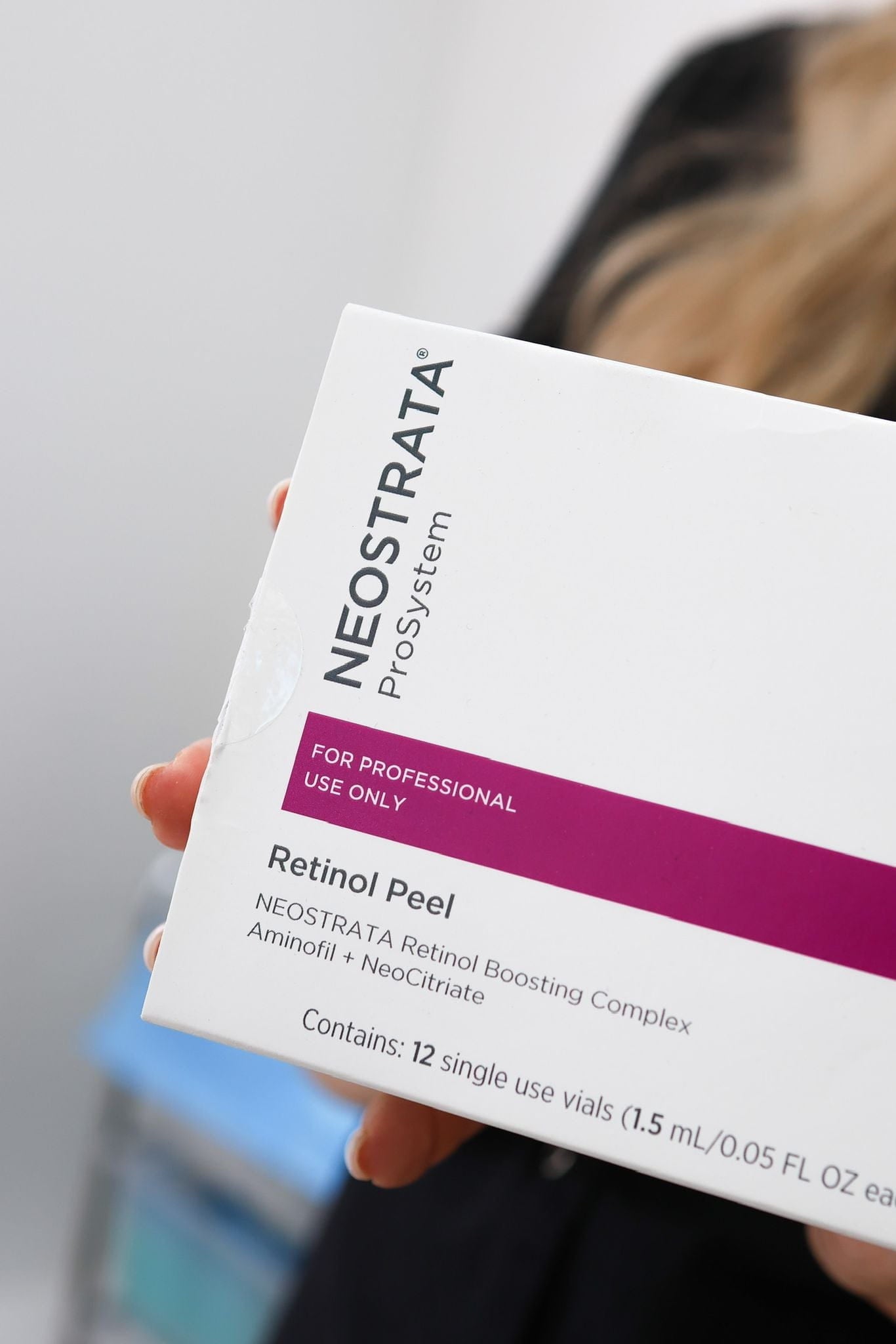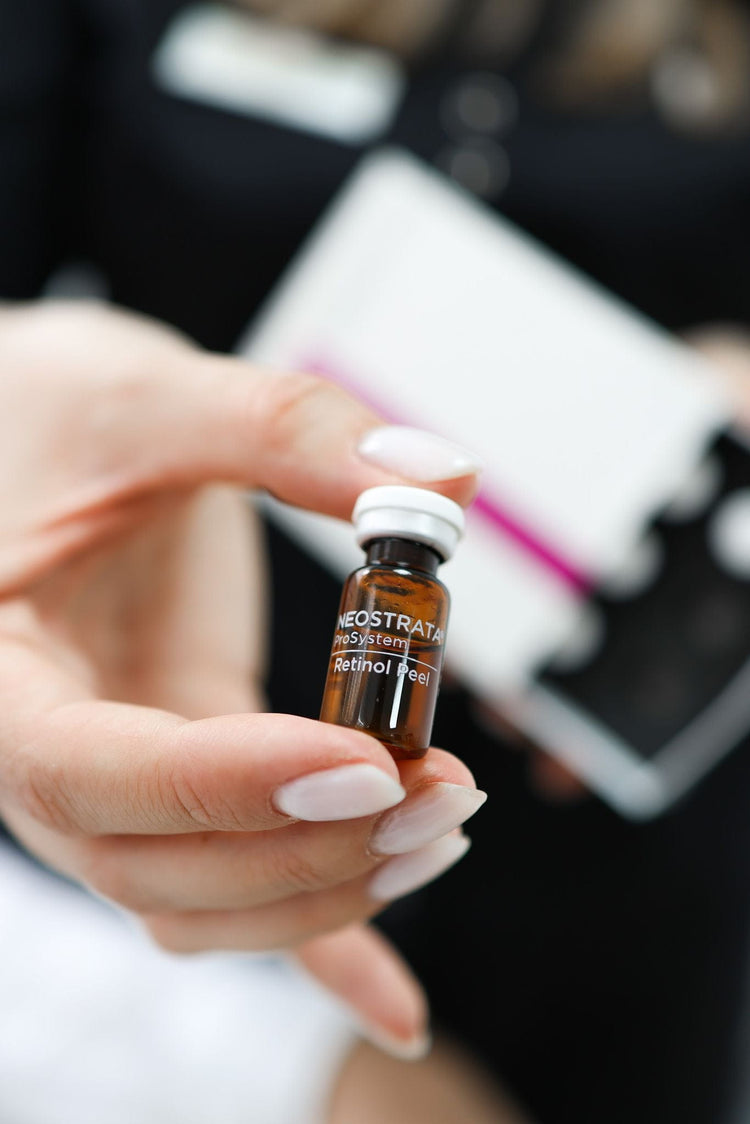Retinol Peel Safety Concerns
Retinol peels have become increasingly popular, touted for their ability to improve skin texture and reduce wrinkles. However, these potent chemical peels can also pose potential risks, particularly for those with sensitive skin. Understanding the potential side effects and safety concerns associated with retinol peels is crucial before undergoing this treatment, especially in a location like Kingston Upon Thames where skincare needs vary across individuals.
Potential for Irritation
Retinol peels utilize a high concentration of retinoic acid to exfoliate the skin, revealing smoother, more youthful-looking skin. However, the potent nature of retinol can lead to irritation, redness, dryness, and peeling for those with sensitive skin. Individuals prone to acne breakouts or rosacea may experience worsened symptoms after a retinol peel.
It is essential for individuals in Kingston Upon Thames or anywhere else considering a retinol peel to consult with a qualified dermatologist or esthetician. They can assess your skin type and medical history to determine if a retinol peel is appropriate and advise on potential risks and mitigation strategies.

Skin Sensitivity Variations
Retinol peels, while popular for their anti-aging effects, can be particularly risky for those with sensitive skin in Kingston Upon Thames or elsewhere. The active ingredient, retinoic acid, acts as a powerful exfoliant, but its potency can trigger irritation, redness, dryness, and peeling in individuals prone to sensitivities. Those with existing skin conditions like acne or rosacea may find their symptoms exacerbated by the peel.
Before undergoing a retinol peel, it is crucial to consult a dermatologist or esthetician experienced in treating sensitive skin. They can evaluate your unique skin type and medical history, providing personalized guidance on whether this treatment is suitable and outlining potential risks and strategies for minimizing them.
Pre-existing Skin Conditions

Retinol peels are potent treatments that exfoliate the skin to improve texture and reduce wrinkles. However, their effectiveness comes with potential risks, especially for individuals with sensitive skin. The high concentration of retinoic acid used in these peels can cause irritation, redness, dryness, and peeling, which can be significantly worse for those already prone to these issues.
Individuals with pre-existing skin conditions like acne or rosacea should be particularly cautious. Retinol peels may worsen existing breakouts or flare up rosacea symptoms due to the exfoliating and inflammatory nature of retinoic acid. It’s essential to consult with a dermatologist or esthetician experienced in treating sensitive skin before undergoing a retinol peel.
They can assess your individual skin type, medical history, and any existing conditions to determine if a retinol peel is safe and appropriate for you. They can also advise on potential risks and offer strategies to minimize them, such as starting with a lower concentration of retinoic acid or using gentler post-peel care products.
Suitable Candidates for Retinol Peels
Retinol peels have gained popularity due to their ability to improve skin texture and reduce wrinkles, but they are not suitable for everyone, particularly those with sensitive skin.
Skin Type and Condition Assessment
Suitable candidates for retinol peels generally have oily or combination skin types and minimal acne scarring. Individuals with mature skin who desire reduced wrinkles and improved skin tone may also benefit. Those with sensitive skin, rosacea, or a history of severe allergic reactions should avoid retinol peels as the potent nature of retinoic acid can exacerbate existing conditions or trigger adverse reactions.
Before undergoing any peel, it is crucial to consult with a qualified dermatologist or esthetician. They will assess your skin type, condition, and medical history to determine if a retinol peel is appropriate and safe for you. A thorough skin evaluation helps identify potential risks and ensures the treatment aligns with your individual needs.
Consultation with a Dermatologist or Esthetician
Retinol peels utilize retinoic acid, a powerful exfoliant, to improve skin texture and reduce wrinkles. However, its potency can be problematic for individuals with sensitive skin.
Those prone to irritation, redness, dryness, or peeling may experience these symptoms worsened after a retinol peel. Individuals with acne or rosacea might also see their conditions exacerbated due to the exfoliating and inflammatory nature of retinoic acid.
Consulting a dermatologist or esthetician before considering a retinol peel is crucial. They can assess your skin type, medical history, and any existing conditions to determine if this treatment is safe and suitable for you.
Minimizing Risks During Treatment
Retinol peels have become increasingly popular for their ability to improve skin texture and reduce wrinkles. However, it’s essential to understand that these potent chemical peels can pose risks, particularly for individuals with sensitive skin.
Patch Testing
Minimizing risks during retinol peel treatments, especially for those with sensitive skin, is crucial. Patch testing before a full treatment is a vital step.
A patch test involves applying a small amount of the retinol solution to a discreet area of skin, like the inner arm or behind the ear, and observing any reactions for several days. This allows you to identify potential sensitivities or adverse reactions before undergoing the full peel.
Professional Application by Trained Practitioners
Minimizing risks during retinol peel treatments, especially for those with sensitive skin, is crucial. Patch testing before a full treatment is a vital step.
A patch test involves applying a small amount of the retinol solution to a discreet area of skin, like the inner arm or behind the ear, and observing any reactions for several days. This allows you to identify potential sensitivities or adverse reactions before undergoing the full peel.
If a patch test reveals sensitivity or irritation, it’s best to avoid the retinol peel altogether or explore alternative treatments suitable for sensitive skin.
It’s also important to choose a qualified and experienced practitioner who understands the potential risks associated with retinol peels and can adjust the treatment accordingly.
They can assess your individual skin type, medical history, and any existing conditions to determine the appropriate concentration of retinoic acid for you and advise on post-peel care to minimize irritation and promote healing.
Post-Treatment Care Regimen
Retinol peels have gained popularity due to their ability to improve skin texture and reduce wrinkles, but they are not suitable for everyone, particularly those with sensitive skin.
- Suitable candidates for retinol peels generally have oily or combination skin types and minimal acne scarring. Individuals with mature skin who desire reduced wrinkles and improved skin tone may also benefit.
- Those with sensitive skin, rosacea, or a history of severe allergic reactions should avoid retinol peels as the potent nature of retinoic acid can exacerbate existing conditions or trigger adverse reactions.
Before undergoing any peel, it is crucial to consult with a qualified dermatologist or esthetician. They will assess your skin type, condition, and medical history to determine if a retinol peel is appropriate and safe for you. A thorough skin evaluation helps identify potential risks and ensures the treatment aligns with your individual needs.
Retinol peels utilize retinoic acid, a powerful exfoliant, to improve skin texture and reduce wrinkles. However, its potency can be problematic for individuals with sensitive skin.
Those prone to irritation, redness, dryness, or peeling may experience these symptoms worsened after a retinol peel. Individuals with acne or rosacea might also see their conditions exacerbated due to the exfoliating and inflammatory nature of retinoic acid.
Consulting a dermatologist or esthetician before considering a retinol peel is crucial. They can assess your skin type, medical history, and any existing conditions to determine if this treatment is safe and suitable for you.
Benefits of Retinol Peels on Sensitive Skin
Retinol peels have become increasingly popular for their potential to improve skin texture and reduce wrinkles. However, those with sensitive skin should proceed with caution as these potent chemical peels can trigger irritation and exacerbate existing skin conditions.
Controlled Exfoliation
While retinol peels offer numerous benefits like improved skin texture, reduced wrinkles, and minimized pores, they may not be suitable for everyone, particularly individuals with sensitive skin. Retinol, a derivative of vitamin A, is a potent exfoliant that can cause irritation, redness, dryness, and peeling. For those with sensitive skin, these side effects can be more pronounced.
Controlled exfoliation, offered by some retinol peels tailored for sensitive skin, uses lower concentrations of retinol to minimize the risk of irritation. These peels gradually remove dead skin cells and stimulate collagen production without causing excessive dryness or redness.
It’s crucial to consult with a dermatologist before undergoing any retinol peel treatment, especially if you have sensitive skin. A dermatologist can assess your skin type, medical history, and current skincare regimen to determine if a retinol peel is appropriate and recommend the most suitable concentration and type of peel for your needs. They can also advise on pre- and post-peel care to minimize potential side effects and ensure optimal results.
Improved Cell Turnover
Retinol peels are potent treatments that exfoliate the skin to improve texture and reduce wrinkles. However, their effectiveness comes with potential risks, especially for individuals with sensitive skin. The high concentration of retinoic acid used in these peels can cause irritation, redness, dryness, and peeling, which can be significantly worse for those already prone to these issues.
Individuals with pre-existing skin conditions like acne or rosacea should be particularly cautious. Retinol peels may worsen existing breakouts or flare up rosacea symptoms due to the exfoliating and inflammatory nature of retinoic acid. It’s essential to consult with a dermatologist or esthetician experienced in treating sensitive skin before undergoing a retinol peel.
They can assess your individual skin type, medical history, and any existing conditions to determine if a retinol peel is safe and appropriate for you. They can also advise on potential risks and offer strategies to minimize them, such as starting with a lower concentration of retinoic acid or using gentler post-peel care products.
- Improve cell turnover and reveal smoother, brighter skin
- Reduce the appearance of fine lines and wrinkles
- Minimize the appearance of pores
Reduced Hyperpigmentation
While retinol peels offer numerous benefits like improved skin texture, reduced wrinkles, and minimized pores, they may not be suitable for everyone, particularly individuals with sensitive skin. Retinol, a derivative of vitamin A, is a potent exfoliant that can cause irritation, redness, dryness, and peeling. For those with sensitive skin, these side effects can be more pronounced.
Controlled exfoliation, offered by some retinol peels tailored for sensitive skin, uses lower concentrations of retinol to minimize the risk of irritation. These peels gradually remove dead skin cells and stimulate collagen production without causing excessive dryness or redness.
It’s crucial to consult with a dermatologist before undergoing any retinol peel treatment, especially if you have sensitive skin. A dermatologist can assess your skin type, medical history, and current skincare regimen to determine if a retinol peel is appropriate and recommend the most suitable concentration and type of peel for your needs. They can also advise on pre- and post-peel care to minimize potential side effects and ensure optimal results.
Discover how a Retinol Peel can enhance your skin with Dr. Laura Geige at It’s Me & You Clinic.
- Xela Rederm Skin Booster Treatments Near Merstham, Surrey - January 12, 2026
- Xela Rederm Skin Booster Treatments Near Beddington, Surrey - January 11, 2026
- Why The Craftsman Series Vape Has A Premium Feel And Build Quality - January 10, 2026
